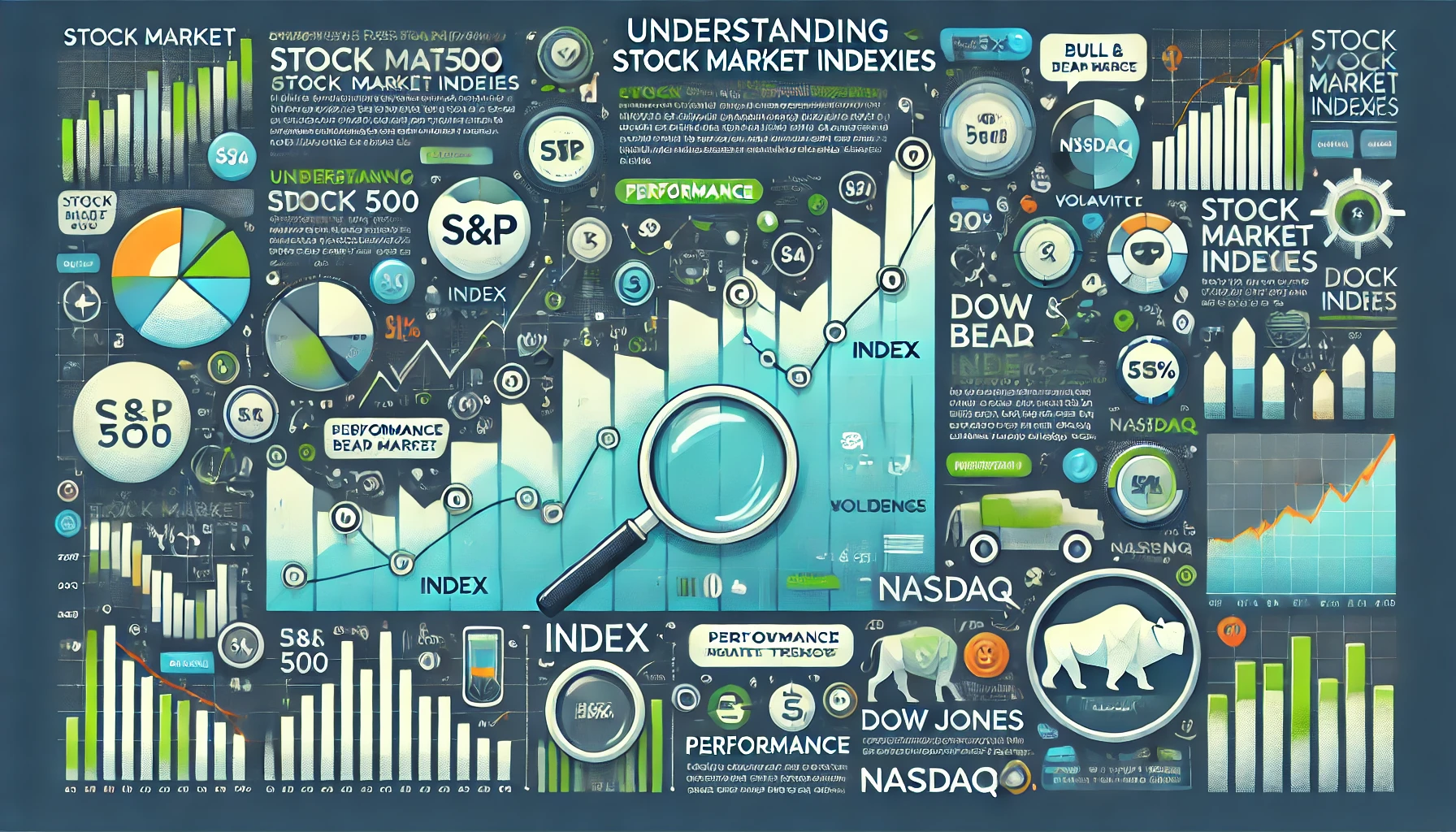Welcome to our deep dive into the world of stock market indices. Whether you’re a seasoned investor or just starting, understanding these indices is crucial. Stock market indices are the backbone of financial markets, providing a snapshot of market performance, investor sentiment, and economic health. Let’s break down this concept in a way that’s engaging, informative, and easy to grasp.
What Are Stock Market Indices?
Stock market indices are essentially indicators that track the performance of a group of stocks. These groups of stocks can represent the entire market, specific sectors, or even particular investment strategies. By monitoring these indices, investors can get a sense of the overall market’s health and make informed investment decisions.
Key Stock Market Indices
Here are some of the most important stock market indices that you should be aware of:
- Dow Jones Industrial Average (DJIA): Often simply called “the Dow,” this index includes 30 major U.S. companies and is a benchmark for the overall stock market.
- S&P 500: Comprising 500 of the largest U.S. companies, this index offers a broader view of the market compared to the DJIA.
- Nasdaq Composite: Known for its heavy weighting towards technology stocks, this index includes over 3,000 stocks listed on the Nasdaq stock exchange.
- FTSE 100: This index includes the 100 largest companies listed on the London Stock Exchange.
- Nikkei 225: Representing Japan’s top 225 companies, the Nikkei 225 is a key indicator of the Japanese economy.
- Hang Seng Index: This index tracks the performance of the largest companies listed on the Hong Kong Stock Exchange.
Why Are Stock Market Indices Important?
Stock market indices serve several essential functions:
- Benchmarking: Investors use indices as benchmarks to compare the performance of their portfolios.
- Market Sentiment: Indices reflect investor sentiment and can indicate bullish or bearish trends.
- Economic Indicators: They can signal economic health, growth, or recession.
- Investment Decisions: Indices guide investors in making strategic decisions about buying or selling stocks.
How Are Stock Market Indices Calculated?
Stock market indices can be calculated in various ways, but the two most common methods are:
- Price-Weighted Indices: In these indices, each stock contributes to the index in proportion to its price per share. The DJIA is an example of a price-weighted index.
- Market Capitalization-Weighted Indices: These indices weigh stocks based on their market capitalization (the total market value of a company’s outstanding shares). The S&P 500 is an example of a market capitalization-weighted index.
Common Misconceptions About Stock Market Indices
Let’s clear up some common misconceptions:
- Indices are not static: The composition of indices changes as companies merge, go bankrupt, or grow. For example, the S&P 500 regularly updates its list of 500 companies.
- Not all indices are created equal: Different indices serve different purposes and focus on various aspects of the market.
- Indices can be sector-specific: Some indices track specific sectors like technology, healthcare, or energy.
How to Use Stock Market Indices in Your Investment Strategy
Using stock market indices effectively requires understanding their strengths and limitations. Here are some tips:
- Diversify Your Portfolio: Don’t rely on a single index. Instead, diversify across multiple indices to spread risk.
- Use Indices for Benchmarking: Compare your portfolio’s performance against relevant indices to gauge how well you’re doing.
- Stay Informed: Regularly check index performance to stay informed about market trends and economic conditions.
- Consider Index Funds: Investing in index funds or ETFs that track these indices can be a low-cost way to achieve diversification.
When investing, it’s crucial to understand the importance of stock market indices. These indices, such as the S&P 500 and the Dow Jones Industrial Average, provide invaluable insights into market trends and economic health. By tracking the performance of these indices, investors can make informed decisions, ensuring their portfolios are aligned with market movements. Utilizing stock market indices effectively can enhance your investment strategy, providing benchmarks for performance comparison and helping to identify potential investment opportunities. Staying updated with index movements is essential for any savvy investor looking to maximize returns and minimize risks.
Examples and Tips for Better Understanding
To help you get a better grasp of stock market indices, let’s look at a few examples and practical tips:
- Example 1: If the S&P 500 is up by 2% on a particular day, it means that, on average, the 500 largest companies in the U.S. have seen their stock prices increase by 2%.
- Example 2: The Dow Jones Industrial Average, with its 30 companies, can sometimes be skewed by the performance of just one or two high-priced stocks due to its price-weighted nature.
- Tip 1: Always look at the long-term trends of indices rather than day-to-day fluctuations. Long-term trends provide a clearer picture of market direction.
- Tip 2: Use sector-specific indices to gain insights into particular industries. For example, if you’re interested in technology, the Nasdaq Composite can give you a good sense of the sector’s performance.
- Tip 3: When a major index hits a new high, it can be a sign of a strong economy, but it can also indicate potential overvaluation. Use this information to review your investment strategy.
Conclusion
Understanding stock market indices is fundamental to becoming a successful investor. These indices not only offer a window into the market’s overall performance but also provide valuable benchmarks and indicators for making informed investment decisions. By familiarizing yourself with key indices, their calculations, and their implications, you can navigate the stock market with greater confidence and precision. Remember to diversify, stay informed, and use indices as part of a well-rounded investment strategy.
By keeping these insights in mind, you’ll be well-equipped to leverage stock market indices to enhance your investment decisions and achieve your financial goals. Happy investing!

